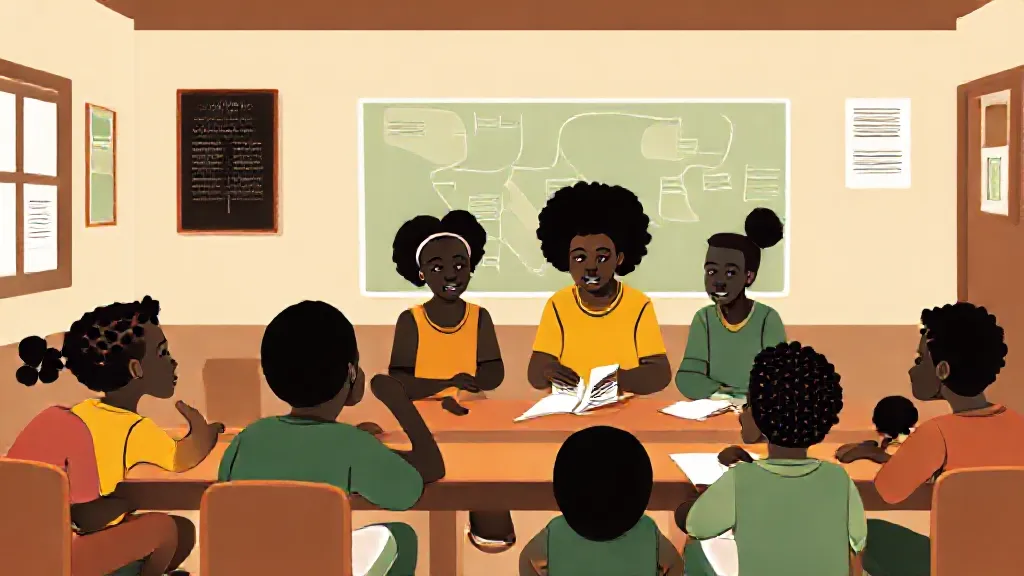The Black Panther Party (BPP), founded in 1966 by Huey P. Newton and Bobby Seale, emerged as a revolutionary organization aimed at combating systemic racism and social injustice in the United States. One of the critical areas where the BPP sought to challenge inequality was education.
The organization recognized that education was a powerful tool for empowerment and social change, and they implemented various programs to address the educational disparities faced by African Americans and other marginalized communities.
The Role of Education in the Black Panther Party's Ideology
Education was central to the BPP's ideology, which emphasized the need for self-determination and community control. The party believed that the traditional educational system perpetuated inequality and failed to meet the needs of Black students.
They argued that schools were often underfunded and offered an inadequate curriculum that did not reflect the history or culture of African Americans. This realization prompted the BPP to create their educational initiatives, aimed at providing an alternative to the mainstream education system.
The Establishment of Free Breakfast and Educational Programs
One of the most notable initiatives was the Free Breakfast for Children Program, which not only addressed hunger but also served as a gateway to education.
The program provided nutritious meals to children before school, ensuring that they were ready to learn. This initiative highlighted the intersection of health and education, demonstrating that a child's ability to learn is often compromised by basic needs not being met. The BPP also established community schools that offered relevant curricula focused on African American history, culture, and political consciousness.
Community Control of Schools
The BPP advocated for community control of schools, arguing that local communities should have a say in how their schools were run and what was taught. They believed that parents and community members should be involved in the decision-making processes, ensuring that the education provided was culturally relevant and responsive to the needs of the students. This demand for community control was a direct challenge to the top-down approach of the existing educational system, which often marginalized the voices of Black families and communities.
The Black Panther Party's Educational Curriculum
The educational curriculum developed by the BPP was designed to empower students with knowledge about their rights and the history of their people. The curriculum included subjects such as Black history, civil rights, and social justice, aiming to instill a sense of pride and awareness in students. The BPP also focused on critical thinking and encouraged students to question societal norms and injustices.
This approach was revolutionary, as it sought to transform students from passive recipients of knowledge into active participants in their communities.
Challenges and Resistance Faced by the BPP
Despite their significant contributions to education, the BPP faced numerous challenges and resistance from local and federal authorities. The organization was often portrayed negatively in the media, and their programs were frequently targeted for defunding or shutdown.
Law enforcement agencies viewed the BPP as a threat, leading to increased surveillance and harassment. This hostility not only affected the BPP's ability to operate but also highlighted the systemic barriers that marginalized communities faced in accessing quality education.
Impact of the Black Panther Party's Educational Initiatives
The impact of the BPP's educational initiatives can still be felt today.
Their emphasis on culturally relevant education and community involvement laid the groundwork for future movements advocating for educational equity. The BPP inspired a generation of activists who continued to fight for civil rights and social justice, emphasizing the importance of education as a tool for empowerment. Their legacy is evident in contemporary discussions about the need for inclusive curricula and the fight against systemic inequalities in education.
Legacy and Continued Relevance
Today, the challenges that the BPP addressed remain relevant, as many communities still grapple with educational disparities. The fight for equal access to quality education continues, and the BPP's approach serves as a model for contemporary activists. By examining the BPP's initiatives, we can better understand the critical role education plays in challenging inequality and fostering social change.
Conclusion: The Importance of Education in Social Justice
In conclusion, the Black Panther Party's challenge to inequality in education was a significant aspect of their broader struggle for civil rights and social justice. Through their innovative programs and advocacy for community control, the BPP sought to empower marginalized communities and create a more equitable educational landscape. Their legacy reminds us of the importance of education as a tool for social change and the ongoing need to address the systemic barriers that persist in our educational systems.
